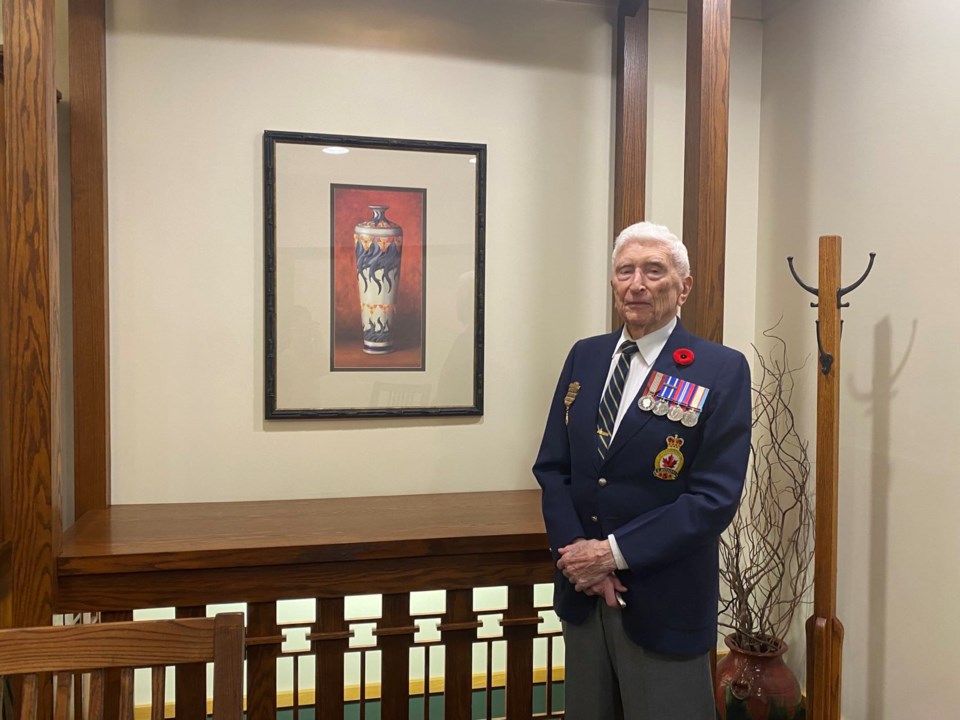Scenes of joyful crowds celebrating in the streets, clutching newspapers declaring the war over is how the end of the Second World War is often depicted, but for Richmondite Walter Tyrrell there was no hoopla. He just calmly packed his bag and returned to Beaufort, a small town in Victoria, Australia.
"It felt like a regular day," said Tyrell, 95, who joined the Royal Australian Air Force in 1944 at 18 and served in a radar station in North Queensland, Australia for one year until the war ended in 1945.
"We packed everything and left the station. Then, I went back (to Beaufort) to farm," Tyrell recalls.
While Tyrell only served for a year, it was memorable and as Remembrance Day approaches, he dons his military uniform, replete with medals, including one featuring the profile King George V. The medal recognizes all ranks of Canadians who served in a theatre of war, even if they were not serving with the Canadian military.
Born in Blackfalds, Alberta in 1926, Tyrrell moved with his family to Australia in 1939 where they bought a farm. Tyrrell’s parents soon regretted the move as the farm was not financially viable. They wanted to return to Canada but by then the war had broken out and there were no passenger ships available, recalled Tyrrell.
At age 16, Tyrrell was required to start training in the Australian Air Training Corps, where he said they did rifle drills using sand instead of bullet for practice.
"I was a bit scared," laughed Tyrrell.
Regardless, he completed two years of training and in 1944 joined the Royal Australian Air Force. He was transferred to North Queensland, Australia where he worked in a shack monitoring the radio system.
Tyrrell said he didn't realize how cruel the war was until he arrived in Sydney and saw released prisoners who had been tortured, many had had their tongues or eyes cut out.
Tyrrell and his family finally returned home in Canada in 1946 where Tyrrell joined the RCMP. He worked at various detachments until he was transferred to Richmond in 1971, where he worked until retirement.
But, even at 95, it's not the end of the road for Tyrrell. He hopes to one day travel to Britain to see the famous code-breaking machine, the Bombe.
The electro-mechanical device was used by the British to help decipher the German’s Enigma-encrypted secret message during the Second World War.



